8 Proven College Organization Tips to Maximize Productivity
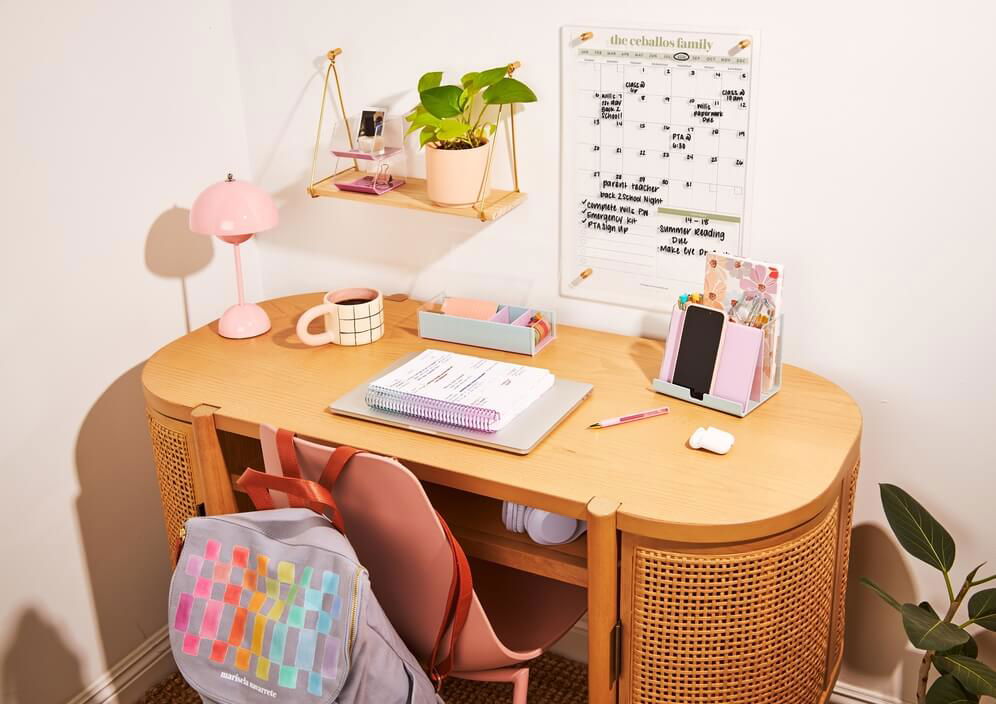
Welcome to college, where the excitement of new experiences meets the challenge of academic rigor. As you make the transition from high school and embark on this new journey, staying organized is the key to managing your time effectively and thriving in your studies. Fear not, for we have some fun and friendly organization tips to help you make the most out of your college years!
Why Is it Important to Stay Organized in College?
College life can be overwhelming with multiple classes, extracurricular activities, and social events (not to mention adjusting to roommate life in a small dorm room). Without proper organizational skills and tools, you may find yourself drowning in chaos, missing deadlines (even social events!), and feeling stressed. Being organized not only helps you stay on top of your responsibilities but also allows you to make the most of your college experience.
One of the primary benefits of staying organized in college is improved time management (which can have daily compounding benefits, from getting to all your classes on time to meeting all your due dates and timing exam prep well to make the grade. Best of all, it keeps you sane while you balance your studies, social events, self-care, and maybe even work too. When you know what needs to be done and when, you can allocate your time more efficiently, giving yourself the opportunity to strike a balance between academics, social life, and personal interests. This, in turn, reduces stress and prevents last-minute cramming sessions before exams or deadlines.

Additionally, staying organized enhances your focus and productivity so you perform at your best while having more time for other, equally important things in your life. When your school supplies, study materials, assignments, notes, and desk are well-organized, you can quickly access the information you need, and studying becomes a more streamlined process. As a result, even if you're taking a lot of classes, you can grasp concepts better and retain information more effectively.
Beyond academic benefits, dorm organization also positively impacts your overall well-being. A cluttered living space can contribute to mental clutter, making it challenging to concentrate on your studies. Embracing minimalism and keeping your dorm room organized can significantly improve your ability to focus and maintain a clear mind.
Getting and staying organized means developing effective routines that support your mental health, class load, and academic performance. While there are mobile apps and websites dedicated to time management, there’s also evidence that offline organizational tools like physical planners and calendars can be more effective at reducing stress, keeping you organized, and helping you achieve your goals.
8 Essential College Organization Tips for College Students
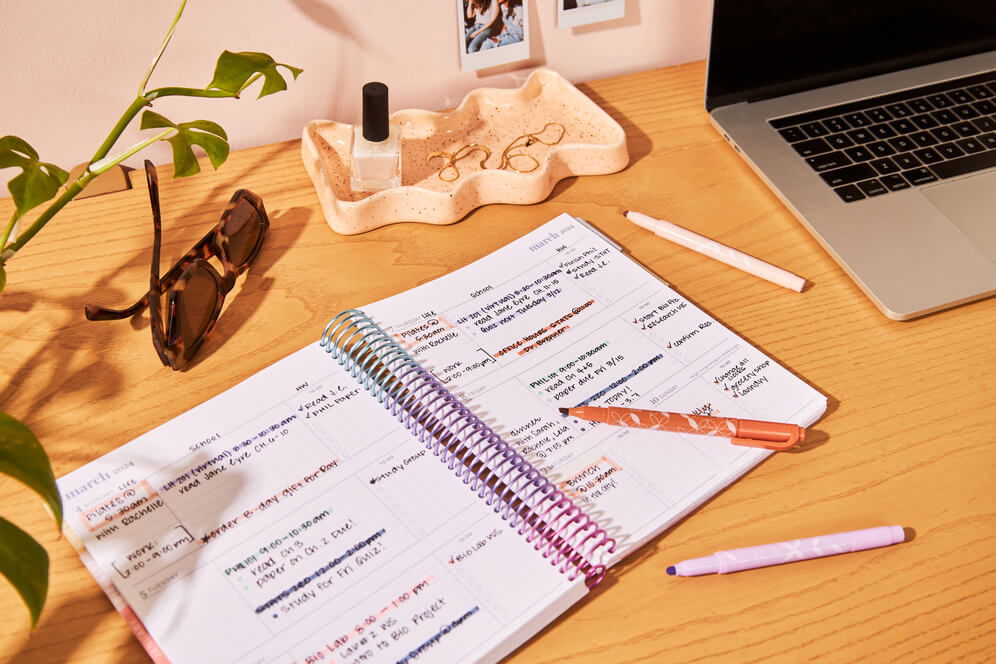
1. Utilizing a Physical Planner
A physical planner is a college student's best friend! Off all the things on your college checklist, make sure to get yourself a colorful and stylish planner -- that functions as a calendar, projects and exams tracker, and notebook in one -- to jot down your class schedules, assignments, and extracurricular commitments. By having everything in one place, you'll be able to visualize your days, weeks, and months better, making it easier to manage your time effectively.
When using a calendar planner, make it a habit to review it at the beginning of each week to get a sense of your upcoming tasks and to-dos, due dates and deadlines. This will allow you to manage your classes, plan your study sessions, allocate time for social activities, and ensure you have enough time to relax and recharge.
If you need a break from screen fatigue or are looking for a digital detox, going back to basics with a physical planner is a tried-and-true way to do so while upping your college organization skills. Here are some quick and easy planner ideas for beginners to get you started.
2. Setting Goals and Priorities
Set both short-term and long-term goals for your academic and personal life. Break down these goals into actionable tasks and prioritize them based on deadlines and importance. Use a calendar to keep your goals time-based and a planner to help you plan out each action step so you can set realistic and attainable goals. This way, you'll have a clear roadmap to follow and stay motivated and on track, class after class, semester after semester, and throughout every school year.
When setting your goals, consider what you want to achieve academically, socially, and emotionally. Do you want to improve your GPA, join a club, or take up a new hobby? By defining your goals and priorities, you can align your daily actions with your aspirations (and not let the little things distract you from what's really important to you).
3. Implementing Time Management Techniques
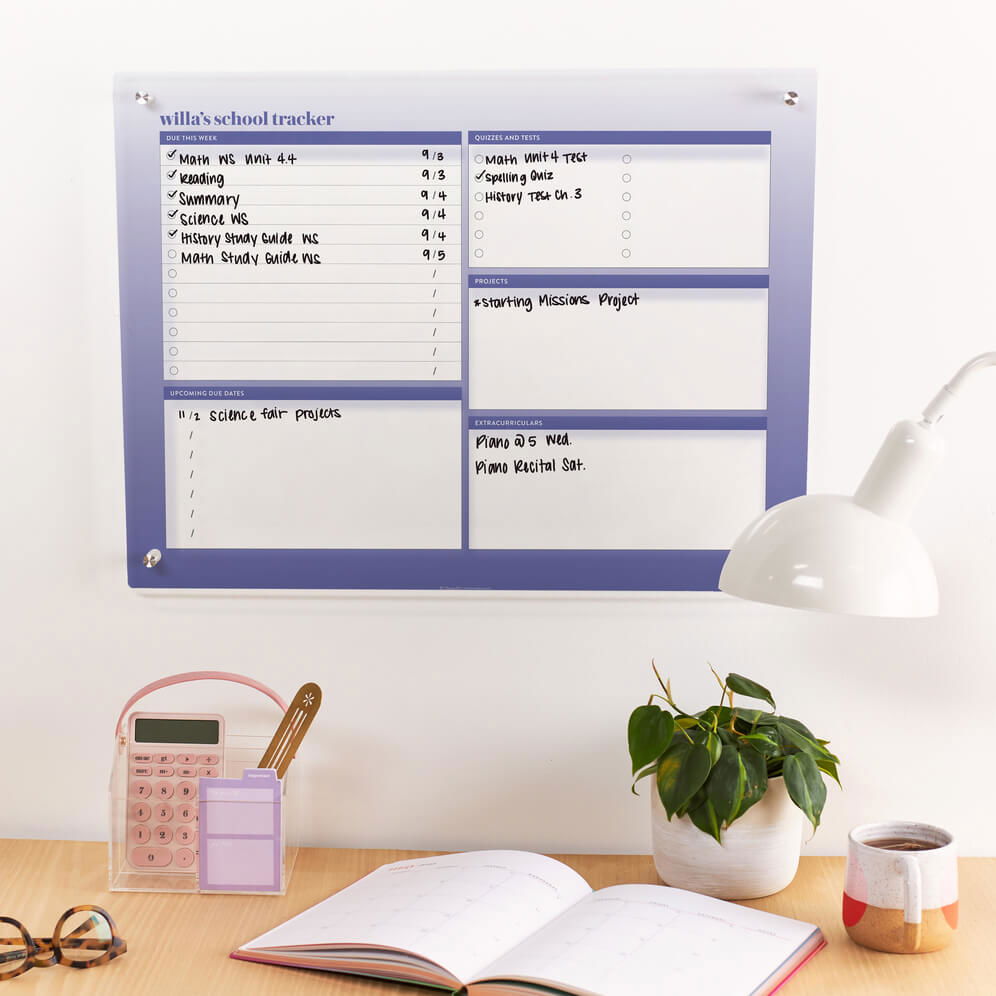
Time management is a crucial skill in college. Always organize your backpack the night before and use tools like a calendar, checklist, and timer or alarm clock; and try techniques like the Pomodoro method, where you work for 25 minutes and take a 5-minute break, or time blocking to allocate specific time slots for different tasks so you can be ahead of your due dates. This will enhance your focus and productivity and give you time for leisure activities.
When it comes to staying organized in college, using a calendar for effective time management is an indispensable tool for every college student. A calendar planner provides a visual representation of your schedule, allowing you to see all your classes, class times, scholastic and personal commitments, deadlines, to-do lists, social events, and work in one place. It doesn't take much time to set up and maintain, and the clear overview of a calendar enables you to make informed decisions about how to allocate your time wisely.
With a well-maintained calendar, you can avoid overcommitment by seeing your existing commitments and preventing burnout. It helps you balance academics and social life, ensuring you prioritize study time while still making time for friendships and memorable experiences. Additionally, you can set reminders for class times, assignment deadlines, track your progress, and easily adapt to any changes in your schedule. A calendar empowers you to approach each day with confidence, knowing that you have a clear plan to tackle your responsibilities and make the most out of your college experience.
Experiment with various time management strategies and find what works best for you. Some college students may prefer early morning study sessions, while others might be night owls. Discover your most productive time of day and plan your study schedule accordingly. Here are some helpful tips for organizing your calendar for ultimate efficiency.
4. Organizing Study Materials
Keep your study materials organized by using folders, binders, or digital tools. Color-code your notes and use sticky tabs to mark important sections in textbooks. A tidy study space will make it easier to find what you need, saving you time and reducing stress during exams.
Consider creating a separate folder or binder for each class subject, and within each folder, organize your notes chronologically or by topic. This way, when it's time to study for an exam or track upcoming due dates, you can easily access the relevant material without wasting time searching through a disorganized pile of papers.
5. Managing Assignments and Deadlines
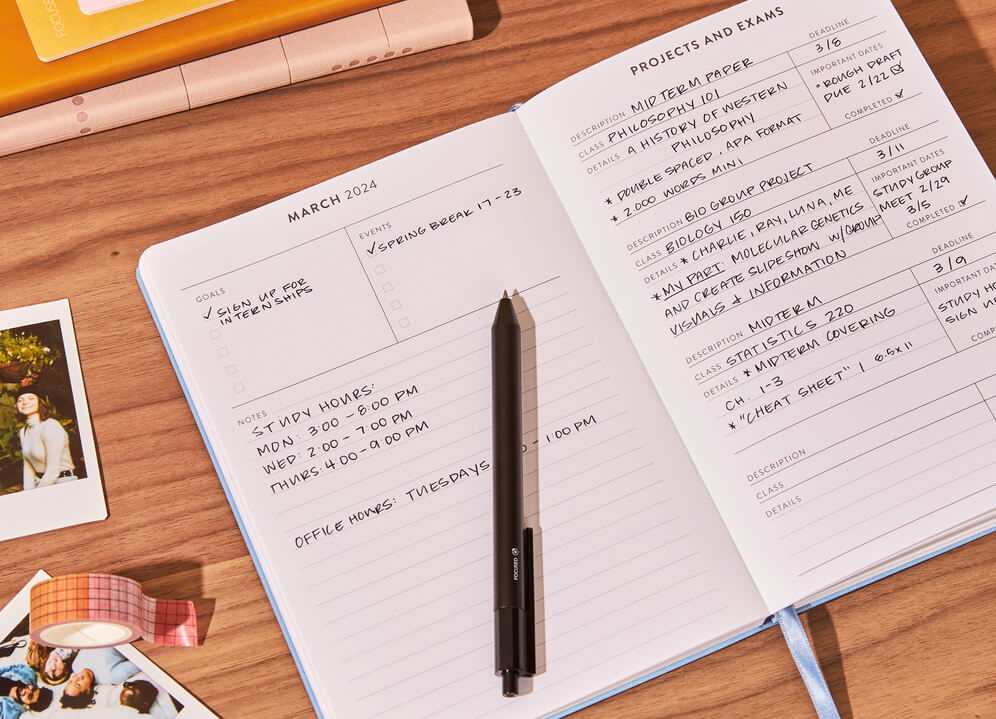
Create a master calendar or use apps like Google Calendar to keep track of classes, homework assignment due dates, exams, and other important events. Set reminders to ensure you never miss a deadline and complete tasks well ahead of time to avoid last-minute rushes.
When you receive a new syllabus or homework assignment, take a few minutes to note down all the important due dates in your planner or digital calendar. This proactive approach will help you plan your study schedule in advance and avoid the stress of last-minute cramming.
6. Effective Note-Taking Strategies
Develop a note-taking system that works best for you. Whether it's traditional handwritten notes, digital notes, or a combination of both, make sure to organize them by subject and topic. Reviewing and condensing your notes regularly will reinforce your learning and make exam preparation more efficient.
During lectures, pay attention to key points, concepts, and examples provided by the professor. Summarize the information in your own words and use bullet points or mind maps to visually represent complex ideas. This will not only help you retain information but also make it easier to revise when exams approach.
7. Decluttering and Minimalism
Living in a clutter-free environment can do wonders for your focus and mental clarity. Embrace minimalism by regularly decluttering your living space and donating or selling items you no longer need. A tidy room will help you concentrate on your studies and create a more pleasant living environment.
Start by organizing your study area and removing any distractions. Keep only the essential items on your desk, such as your laptop, textbooks, and writing materials. Consider using storage solutions like bins or shelves to keep your belongings organized and out of sight.
8. Digital Organization Tips
Since college life often involves working on laptops and devices, digital organization is equally important. Organize your files into folders, use digital calendars and productivity apps like Evernote or Trello for project management, and back up your important documents regularly. This will prevent digital chaos and protect your work from unexpected mishaps.
Furthermore, maintain a clutter-free digital environment by organizing your computer desktop and deleting files you no longer need. Keeping your digital workspace tidy will make it easier to find important documents and stay focused on your tasks.
The Importance of Self-Care and Seeking Support
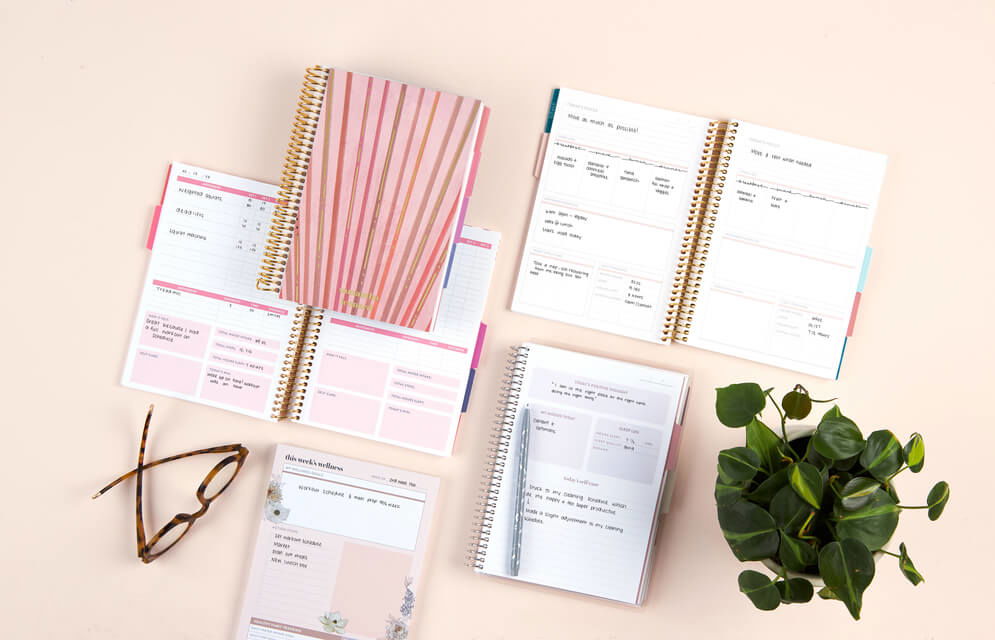
Remember, staying organized doesn't mean pushing yourself to the limit. Take care of your physical and mental well-being by getting enough sleep, eating well, and exercising regularly. Don't hesitate to seek support from friends, family, or campus resources if you feel overwhelmed or stressed. College is a learning experience, and it's okay to ask for help when you need it.
Make time for activities that bring you joy and relaxation. Whether it's reading a book, going for a walk, or spending time with friends, self-care is crucial for maintaining a healthy balance in college life.
If you ever find yourself struggling to stay organized or feeling overwhelmed, reach out to your professors or academic advisors. They can provide valuable guidance and support to help you navigate challenges and succeed in your studies.
By following these 8 proven college organization tips, you'll be well on your way to maximizing productivity and achieving success in your academic and personal endeavors. Embrace the fun side of organization and find what works best for you. Remember, college is not just about studying but also about personal growth and creating lasting memories. Stay organized, stay focused, and make the most out of this exciting phase in your life! Start with these best-selling college organizational essentials!
Restocking your desk or reorganizing your study space? Explore college organization best sellers , including college planners, desk accessories, calendars, and more to keep you organized and on track during the school year.
Related Organization + Productivity Guides
You may also enjoy these other popular planning + organizing tips for college and life:
- 11 Habits to Become an Organized Student
- 40 Ways to Organize Your Desk for Productivity
- How To Organize & Decorate Your Dorm Room
- 20 Tips on How to Organize Everything In Your Life
- How to Organize Your Backpack
- Academic Planner 101: How to Use a Planner for School
- What Are Academic Goals and How to Achieve Them?
- How to Get Organized When You Are Overwhelmed: 10 Easy Tips